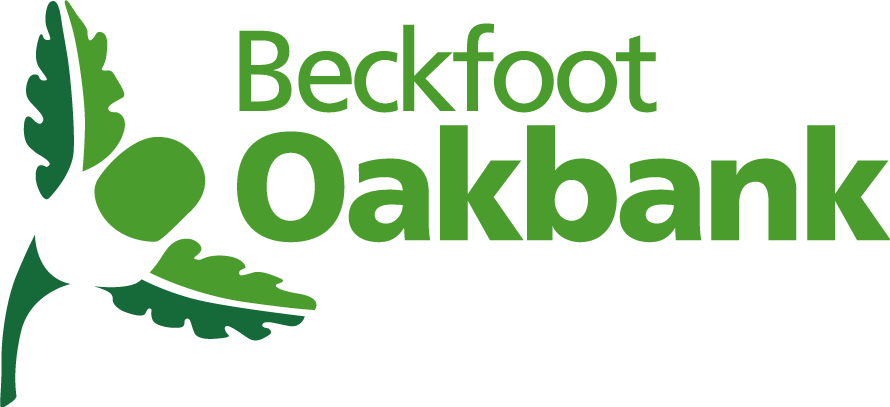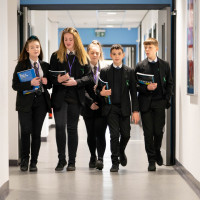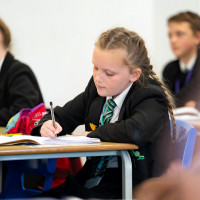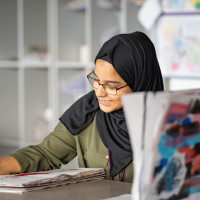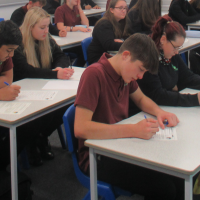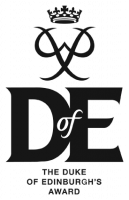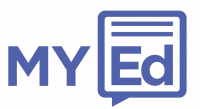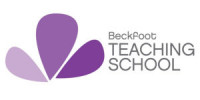Beckfoot Trust Mission
Creating Remarkable Schools Where No Child is Left Behind
School Sentence
Beckfoot Oakbank School ensured that every child succeeded in their education, had a great career and enjoyed life.
Our Values
Enjoy – We enjoy belonging to Beckfoot Oakbank
Learn - We are all here to learn
Succeed – We are determined to succeed
The Core Purpose - The Why
As a Beckfoot Trust school we believe that all children can, and it is our job to make sure they do. We believe that a shared body of knowledge is a human right, an entitlement; if our students do not have it, they will be reliant on those that do. We aim to develop an intrinsic deep love and enjoyment of learning and this in turn will lead to success.
At Beckfoot Oakbank, so that our students can have a great career and enjoy life, they must be taught subject-specific knowledge that takes them beyond their everyday experience. Our students come to our school with a wide variety of prior experiences.
A significant proportion of our children could be considered disadvantaged (SEN and PP numbers). Our aim is to ‘level the playing field’ (no child is left behind) so that all can enjoy, learn and succeed in life. We believe that curriculum planning and delivery is an ethical pursuit and is about achieving our mission and our school sentence.
- Our main intent is to develop independent and self-determinant young people through the acquisition of progressively difficult knowledge
- The knowledge that we teach must allow students the opportunity to reach their full academic and social potential
- To achieve this our curriculum is as broad as possible for as long as possible for all students
- Our knowledge-rich curriculum incorporates diverse types of knowledge; ‘knowing how as well as knowing that’ as well as knowing ‘whose knowledge’
- At different stages of development and curriculum progression, there may be more focus on either knowing how or knowing that, with the aim of young people being able to access higher education and have a great career
- Curriculum should always be ‘hotly debated’ and is never done so that our students experience knowledge that is the ‘best that is thought and said’ at any one time
- High levels of literacy are vital for children to succeed and lead happy lives and our curriculum is designed and implemented to reflect this
- As educators, we understand that what we teach and how we teach are intrinsically linked as knowledge is transformed by the teacher for the students
- We do not see diversity and inclusivity as ‘add ons’ to our curriculum, although we recognise the need to plan for extra immersion days or experiences to raise consciousness
- The growth and personal development of our students is integral to all that we do, and this is a consideration within each subject as well as curriculum design
- We are determined to take our children beyond their everyday experiences through wider cultural experiences so that they can enjoy, learn, succeed
- Where an evidence-informed scheme that is written by experts is available we will either adopt with fidelity or use as a benchmark for our own schemes
The Wider Purpose - Cultural Capital and Wider Experience - No Child Left Left Behind
- We build cultural capital to support our young people in being able to ‘sit at the top table’
- Cultural capital may be built by experiences beyond the classroom although more effectively by constant teaching of norms
- Our learning habits are about how our children learn and build cultural capital, through developing ‘time and a place’ behaviour (eg polite response)
- We encourage the use of standard English through widening student vocabulary and speaking in full sentences
- We encourage civility through constant modelling of manners and positive framing and recognition (golden tickets)
- We are committed to a universal offer of wider experiences, and this is included in the Oakbank Charter. A broad range of visiting speakers to both introduce and reinforce new areas of cultural, moral, social and spiritual importance. A programme of trips and reward events also ensure students have a rich choice of experiences to complement their learning in class. NMO
- Educational visits both enhance, reinforce and broaden our formal curriculum
- We will never offer an educational visit during the taught day that would preclude young people on financial or cultural grounds
- We do whatever it takes to ensure our extra-curricular is as inclusive as possible and we take steps to promote to and encourage those who will benefit most
- Our educational visits and extra-curricular seeks to offer all students experiences that are ‘beyond their everyday experiences’ with the aim of building cultural capital
- As part of our universal offer for character development, we are growing Student leadership. Students can take part in an intergenerational project, become peer mentors, be an anti-bullying leader, join Bradford Citizens or be a School Ambassador.
- The development of self-knowledge through reflection is important for our students to become self-actualised. This is an important part of Open Minds and Tutor Time.
The What – The Overall Design of the Curriculum (Why This, Why Now)
- To achieve breadth and depth we have fully adopted the National Curriculum as we believe this is the building blocks for the acquisition of a shared body of knowledge; the best that has been thought and said at this time
- All our children access the National Curriculum, even if in some cases this is done with greater scaffold (eg pre-teach) or at a slower pace
- Our options do not take place until Year 9 and students are guided through this process so that they have had access to breadth and depth and choices are not narrowed for Level 3 and university are not narrowed
- We encourage as many children as possible to take as many academic subjects as possible
- EBACC is the intended default curriculum for all, most students already study a Humanities subject with an increasing proportion studying a language
- Breadth is provided by our arts and vocational offer at KS4
- The teaching week has been extended to include a ‘Right to Read programme (20 minutes 4 times a week) where children are read to by teachers. They access a diverse canon of books by their teacher, the choices of texts deliberately take them beyond their everyday experiences, and the English curriculum. Informed by a wide range of stakeholders the choice of texts are to support students’ personal development, complement the taught-PD curriculum and challenge students’ preconceptions about the wider world. (see intent)
- The curriculum is designed to allow for an additional focus on improving standards in literacy
- Each year group has a foundation learning (nurture) group where students with a primary cognition and learning need have the National Curriculum delivered by subject experts for the entire week (see intent)
- The nurture group adapts whole school routines to support student self-regulation and building of self-esteem (see intent)
- A small number of students with severe SEMH are provided with a curriculum that mirrors the Year 9 nurture curriculum CTMC (see intent)
- We teach the disciplinary aspect of RE through our Open Mind curriculum and this is fully informed by the local SACRE and national statutory requirements for PSHE and RHSE. (see intent)
- Personal development is given centrality for all year groups as it supports the enjoyment and success of all our students, PSHE, Citizenship and RHSE is taught through tutor time, assemblies, the Open Minds Curriculum and where necessary, drop-down days
The What and When - Curriculum Planning
- All subjects have long term, medium term and daily planning with an emphasis on ‘why this, why now.’)
- Teachers plan collaboratively to ensure learning is sequential, broken down into learning objectives, granular learning steps and that knowledge is chunked, spaced and interleaved
- All teachers are mindful of student data and use class charts and individual’s learning plans to tailor learning to student need
- All subjects have an intent document that sets out the why, what and how of their curriculum
- In Maths, English and Science we have adopted external programmes with a proven track record of success and extensive external support (Ark for English and Science, White Rose for English and Maths)
- We encourage collaborative planning to reduce teacher variation and reduce workload and time is given to this as a priority
- Teachers plan their lessons based on evidence-informed practice eg cognitive psychology so that students know more and remember more (eg emphasis on knowledge acquisition and retrieval)
- Students haves access to knowledge organisers that identify the essential knowledge and these are used in lessons and for independent study to support the development of schema
- The school is increasingly moving to greater prescription in how we plan and teach to reduce in-school variation, reduce student cognitive load and support calm and focussed learning for all, particularly the most vulnerable
The How - Our Approach to Developing Exceptional Pedagogy (Implementation)
- We are developing evidence informed Oakbank Way for teaching with 3 main aims support all students and particularly the most vulnerable through consistent and predictable routines and teaching techniques (reduction of cognitive load). support students in knowing more and remembering more through using cognitive science strategies for acquiring, retaining and retrieving knowledge. support all staff in delivering their expert subject-specific knowledge through direct instruction
- Our main teaching techniques have been developed from Teach Like a Champion and are implemented through staff practice
What You Would Expect to See in a Classroom
- Threshold – meet and greet on the corridor at the start of every lesson,
- 3, 2, 1 countdown for students to get ready to pay attention, listen, learn,
- A clear Do Now activity at the start of the lesson, ready as students arrive, to activate prior learning often based on either the Knowledge Organiser or reteaching a concept from last lesson.
- Teacher instruction (in silent learning mode ‘Individual focus’) that models and scaffolds with new material chunked using small steps
- I Do – teacher instruction (in silent learning mode ‘Individual focus’)
- We Do – modelling, use of the visualiser to model and co-construct, reviewing work through same time feedback
- You Do – embedding through practice use of visualisers for same time feedback
- Checking for understanding – cold call, no opt out
- Learning modes to provide clarity of expectation, improve the climate and promote learning
- Managing the climate
- Seating plans. All classes have a tactical and pre-planned seating plan to ensure a disruption-free learning environment.
- Use of the graduated whole school behaviour for learning policy to ensure fairness, justice and consistency for all students.
- Effective management and planning of resources and learning materials to maximise learning time in each lesson.
- Evidence that both staff and students have worked to repair and rebuild relationships
- Effective formative assessment through cold call, mini whiteboard, feedback through the visualiser
- Development of core literacy skills is an expectation in all learning with 4 main expectations:
- Oracy – speak in full sentences
- Writing – marked using the literacy codes to revise writing
- Vocabulary – Tier 2 and 3 taught using a common approach (Frayer model)
- Reading – Reciprocal reading
- Calm dismissal
Assessment and Feedback - Know More and Remember More
- Effective formative assessment is a feature of all lessons and leads to adaptive teaching
- EFA is seen through questioning (using the cold call technique), adapting teaching following Do Nows, use of mini-whiteboards – show me, same time feedback through use of visualisers
- EFA should encourage inter-leaving so that students build on previous knowledge and can apply core content in different ways
- As students reach the end of Year 10, assessment is increasingly global
- Students sit common Trust assessments across the Core subjects in Y7, Y10 and Y11 which are ambitious and influenced by top performing schools
- End of unit tests happen in line with long long term plans, these assessments are cold unseen and timed so that students build resilience and are increasingly cumulative to support recall through spacing
- Data from end of unit tests is used for identifying learning gaps so that teachers can prioritise learning in lesson and intervention, with an emphasis on the most vulnerable
Professional Growth - CPD
- Professional growth is part of our People First commitment
- We are all here to learn and we can all get better
- Our CPD programme is designed to meet our mission, school sentence and is values-driven (see programme)
Quality Assurance
- As a trust we have a set approach to quality assuring the quality of education (see document)
